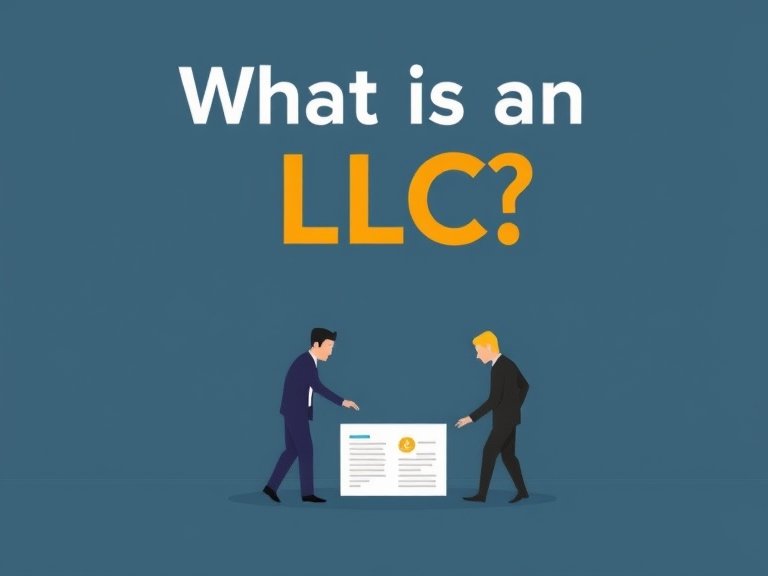When starting a business, one of the most important decisions you’ll make is selecting the right business structure. One of the most popular choices for small business owners is an LLC, or Limited Liability Company. But what is an LLC, and how does it benefit entrepreneurs? In this guide, we’ll dive deep into the key features of an LLC, its advantages, and how it works.
What Is an LLC?
What is LLC (Limited Liability Company) is a type of legal business structure that combines the flexibility of a partnership with the liability protection of a corporation. It allows business owners to protect their personal assets from business debts or legal actions. In essence, if your LLC faces a lawsuit or financial trouble, your personal assets, such as your home or personal savings, are typically shielded.
Key Features of an LLC
Here are the key features that define an LLC:
- Limited Liability Protection: As mentioned, one of the main reasons for choosing an LLC is the protection it offers. Owners (also known as members) are not personally liable for the business’s debts or liabilities.
- Pass-through Taxation: LLCs are typically taxed as pass-through entities, meaning the business itself doesn’t pay taxes. Instead, profits and losses pass through to the individual owners’ tax returns, avoiding double taxation.
- Flexible Management Structure: LLCs can be managed by their members (owners) or by appointed managers, offering flexibility in how the business is run.
- Fewer Formalities: Unlike corporations, LLCs are not required to hold regular meetings or record meeting minutes, making them less burdensome to operate.
Benefits of an LLC
Choosing an LLC offers a wide range of benefits, making it an attractive choice for small business owners. Some key benefits include:
- Personal Asset Protection: LLCs protect the personal assets of their owners. This means that if the business is sued, the members’ personal property, like their home or car, is typically safe from claims.
- Tax Flexibility: LLCs offer pass-through taxation, meaning profits are only taxed at the individual level, avoiding the double taxation that corporations face. Additionally, LLCs can opt to be taxed as a corporation if that’s more beneficial.
- Simplicity: Starting and maintaining an LLC is generally less complicated than a corporation. It has fewer administrative requirements, which makes it easier to run for many entrepreneurs.
- Ownership Flexibility: An LLC can have an unlimited number of members, and ownership can be structured however the members choose.
How Does an LLC Work?
An LLC can be formed by filing articles of organization with the state in which the business operates. The requirements vary from state to state, but generally, you’ll need to:
- Choose a business name that complies with state regulations.
- File articles of organization with your state’s Secretary of State office.
- Pay the required formation fee.
- Create an operating agreement that outlines how the LLC will be run.
Once formed, the LLC operates as a separate legal entity from its owners, meaning the business itself can enter contracts, own property, and conduct business transactions.
Who Should Form an LLC?
An LLC is ideal for small business owners who want personal asset protection but don’t want the complexities of a corporation. If you’re starting a business as a sole proprietor or with a few partners, an LLC can provide a good balance of liability protection and operational flexibility.
Conclusion
In summary, what is an LLC? It’s a flexible and protective business structure that offers the best of both worlds: personal asset protection and tax flexibility. Whether you’re a freelancer, entrepreneur, or a small business owner, forming an LLC is a great way to safeguard your personal assets while maintaining the freedom to manage your business your way.



